Dr. Carolyn Lee reflects on a different cliché each week. Recently, in her blog, “As Luck Would Have It,” she discusses sheer luck and whether or not luck can really be good or bad. This week Carolyn explores the cliché, gone but not forgotten.
Learn more about Dr. Carolyn Lee on her biography page or investigate 29 more clichés in her latest book, Keep Your Eye on the Ball And Other Clichès to Live by.
Gone but Not Forgotten
One morning in 1969 I opened the door of my apartment and stepped out to get the Detroit Free Press which I knew would be lying in the hallway. I looked down at the paper, and the headline was staring back up at me: “At 47, the Rainbow Ends.” Judy Garland had died. I picked up the paper, grabbed a box of Kleenex and went into the bathroom, where I stayed for the next hour.
Even now, all these years later, I can remember the sense of loss I felt, the sadness and the regret. I had been a fervent fan of Judy’s almost all my life. The Wizard of Oz was released the year I was born. “Somewhere Over the Rainbow” was one of the first songs to which I had learned all the words. I was in graduate school when her Carnegie Hall album was released. The songs on the Carnegie album and my experiences and memories of that time of my life are inextricably and forever linked.
What I had with Judy, I later learned, is called a parasocial relationship. That is a one-sided, non-reciprocal relationship that we sometimes have with celebrities—people we love, but who have no idea who we are. When we lose those people, we experience real grief, a grief about which we don’t have to feel embarrassed. Dr. Jill Gross, a grief counselor and therapist explains, “There’s a comfort knowing certain people are in the world and when they’re suddenly not, we have to rearrange the pieces of our life that don’t include them anymore.”
In 1963, I was teaching a 10th grade English class when a hysterical student burst into the room and said, “The president has been shot!” Life came to a standstill. Nobody knew what to do or what to say or what to feel. For the following week, I rarely left my position in front of the television—watching, over and over again, those black and white images of the Kennedys arriving in Dallas, the motorcade, the horrified crowd of onlookers, the funeral cortege, the little boy saluting his father. We Americans then entered a painful period of grieving for a man whom we believed we knew, and without whom life would be permanently altered.
Most of us remember where we were and what we were doing when we learned of the passing of an admired celebrity. I was in Philadelphia, on my way to a breakfast meeting with a group of young people when I saw in a tin newspaper box, the front page of the Philadelphia Inquirer announcing the death of Grace Kelly. When I got to the restaurant where those young people had gathered, they saw the stricken look on my face and immediately inquired, “What’s wrong? What happened?” I gently broke the news to them, and then immediately realized that, to people of their generation, Grace Kelly was an aging monarch of a foreign country, someone about whom they knew very little. They couldn’t quite understand my rather dramatic response to her death. But to me, Grace Kelly was the most glamorous movie star of my teenage years, someone whose career and fairytale life I had followed faithfully, whose photographs appeared in my scrapbooks, whose movies had brought me hours and hours of pure pleasure. I would feel her absence for years.
I came across something the other day that provided me with a new perspective on “celebrity grief” or the loss of parasocial relationships. Someone on twitter, a fan of David Bowie, shared her feelings about his death. She reminded herself that the world was more than four and a half billion years old, and she was lucky enough to have existed at the same time as David Bowie. I began to consider the long list of favorite celebrities with whom I was privileged to share the planet.
When I saw Gone with the Wind the first time, Clark Gable and Vivien Leigh were still alive. I watched Bob Hope host the Oscars a dozen times. Marilyn Monroe was a screen sensation. James Dean showed us something we had never seen before. Marlon Brando changed the nature of film acting. Grace Kelly and Cary Grant dazzled in To Catch a Thief. JFK reigned over Camelot. And Judy Garland was playing to sold out audiences at Carnegie Hall. I was lucky enough to have existed at the same time as Gene Kelly and Fred Astaire. None of these parasocial pals of mine knew who I was, but I “knew” them as live, vibrant human beings whose effect on my life was not insignificant. And aren’t I fortunate that, with the flick of a switch, I can watch Gene dance with Jerry the Mouse in Anchors Away or listen to Judy sing “The Man that Got Away” for the thousandth time?
Want to Read More?
Check out Dr. Carolyn Lee’s blogs on her website, she features a new cliché each week or you can order her new book, Keep Your Eye on the Ball And Other Clichès to Live By. Want to know more about the woman behind the words? Read more about Carolyn here. We hope you enjoyed this article learning more about the cliché, gone but not forgotten.
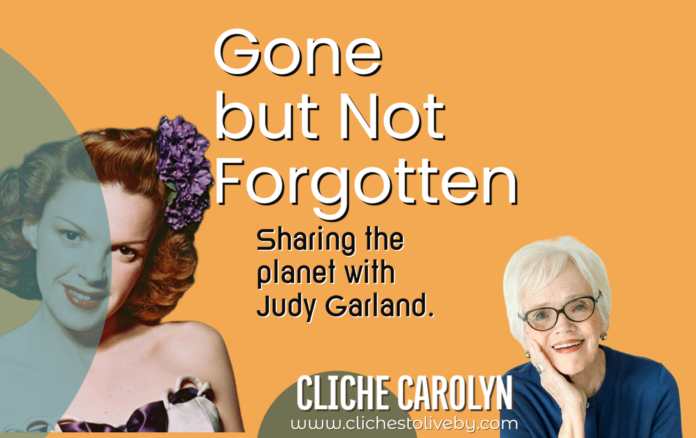
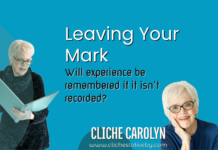
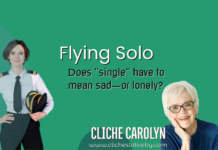
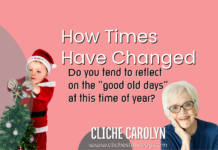


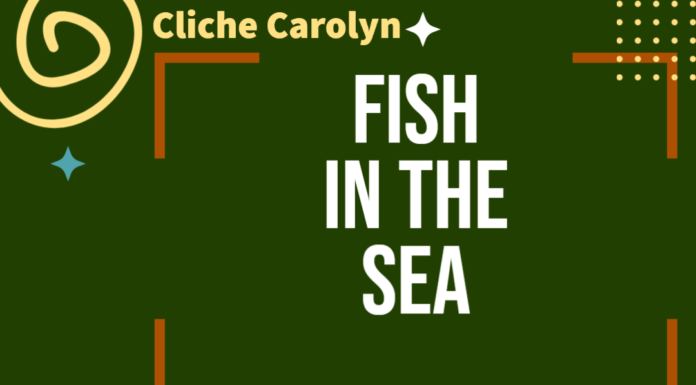



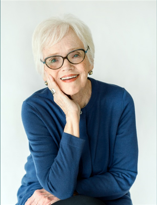

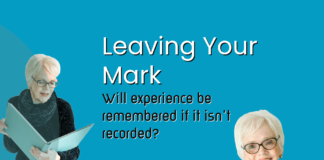
Carolyn, thanks for giving a name to my “connections” with Julie Andrews and Barry Manilow. I’ve admired both of them deeply, from afar, and their talents have brought me endless hours of pleasure… so much so that my children (and grandchildren) are already keenly aware that should either of them pass while I’m still alive, I will be devastated. The grief will be oh-so-real, and many tears will be shed. Side note: I consider myself lucky to be sharing the planet with you, my friend, and will always remember our shared plane ride where we were fortunate to sit side-by-side!